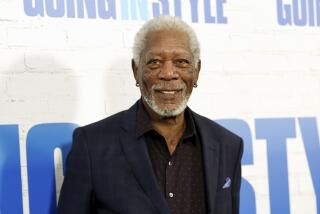Defining ‘N-Word’
- Share via
Re “Dictionary’s Stance on ‘N-Word’ May Mark Defining Moment,” May 11: John D. Williams Jr., executive director of the National Scrabble Assn., claims that “to a white person living in the rural South during the 1950s, calling someone a nigger wasn’t a slur. It was a statement of fact, a way of describing who might be coming to drop off a package.” This assessment is obtuse at best, racist at worst.
If Williams really is an expert on how words work, then he’ll know that words are used to label categories and distinctions that are important to the culture that uses them. Why did the 1950s rural South need the word “nigger”? Why couldn’t such a white person simply note that a man or a woman was coming to drop off a package? (Note the menial and harmless example; how about describing who was lynched yesterday evening?) Does Williams really believe that “nigger” was a neutral word for white people, as unevocative as “maple tree” or “post office”? Words do not only denote, or label, things in the world; they also connote--they carry attitudinal and emotional overtones.
Both Williams and Merriam-Webster are deep in denial about the cultural significance of this word. Instead of bolstering their own position, their defense supports Delphine Abraham and the NAACP in their claim that clueless white folks shouldn’t be the only ones writing the dictionaries.
JOHANNA RUBBA
Professor of Linguistics
Cal Poly San Luis Obispo
* Watch “Def Comedy Jam,” interact with black youth, or listen to most popular rap albums to learn the current connotation of this term among African Americans. It once again means “a black person” and is not usually taken to be offensive--when spoken by blacks. It is only when spoken by non-blacks that it becomes “a derogatory slur.”
Can dictionaries reasonably be expected to reflect this double standard? Isn’t this double standard itself racist?
MARK DAVIS
Los Angeles
More to Read
Sign up for our Book Club newsletter
Get the latest news, events and more from the Los Angeles Times Book Club, and help us get L.A. reading and talking.
You may occasionally receive promotional content from the Los Angeles Times.










